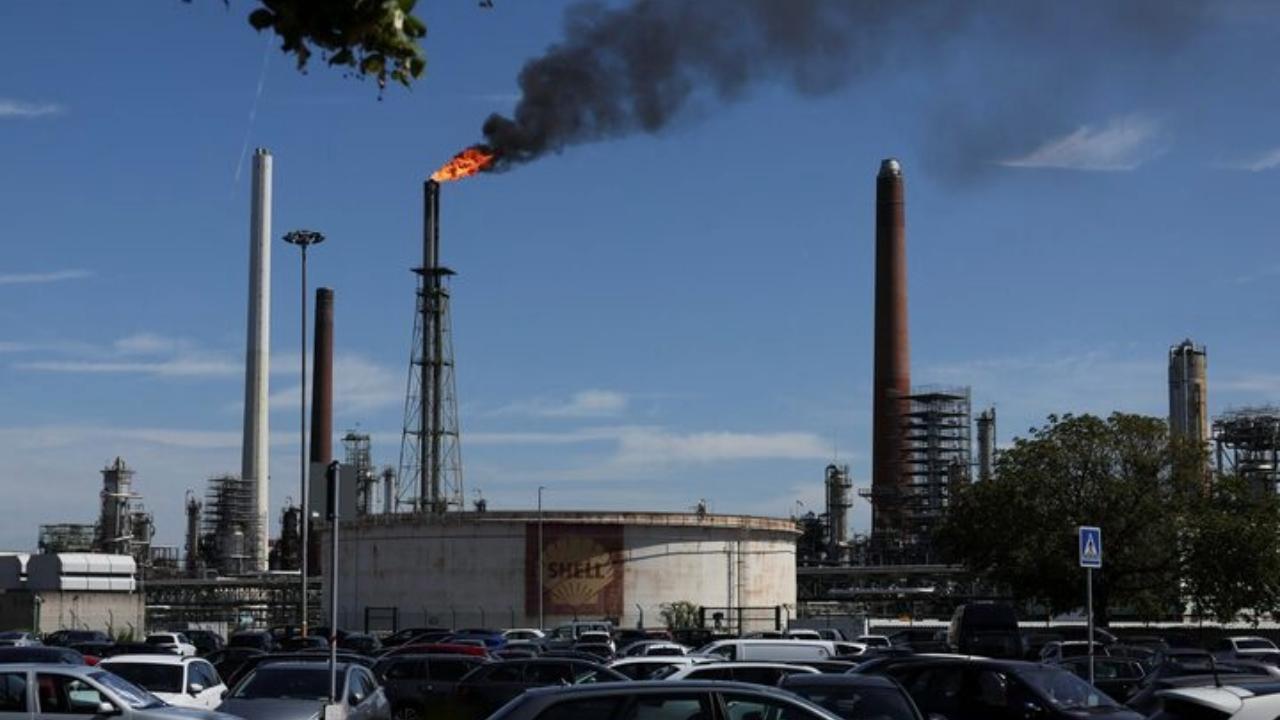You have not yet added any article to your bookmarks!

Join 10k+ people to get notified about new posts, news and tips.
Do not worry we don't spam!

Post by : Anis Farhan
Photo: Reuters
What used to be a once-in-a-decade event is now a recurring summer headline. From the American Southwest to Southern Europe, South Asia to the Middle East, temperatures are breaching 45–50°C (113–122°F) with alarming frequency. But the bigger story is what follows: overloaded transformers, grid failures, and cities plunged into hours—or even days—of darkness.
In India, states like Uttar Pradesh and Bihar have experienced blackouts stretching over 8 to 10 hours in 2025, despite near-record coal usage. In Texas, demand hit an all-time high in June 2025, pushing ERCOT (the state’s power manager) to issue repeated emergency alerts. Greece and Italy also faced rotating outages this summer, with fire departments stretched thin due to overheated power lines sparking wildfires.
These aren’t isolated flukes. This is infrastructure being outpaced by a warming world.
Here’s the technical breakdown: power grids are designed to operate within a certain temperature band. Transformers, transmission lines, and substations all have thermal limits. When ambient temperatures rise, efficiency drops—lines sag, resistance increases, and transformers begin to overheat.
Air conditioning, ironically, becomes the tipping point. In heatwaves, AC units drive up peak electricity demand by as much as 60%, particularly in urban centers. The result? Utilities are forced into load shedding—deliberately cutting power in certain areas to prevent a full-scale collapse.
In China, where rapid industrial expansion meets unforgiving heat, factories are increasingly told to power down during summer surges. In South Korea, government advisories now include “grid survival” tips for citizens during heat spikes.
The takeaway? Our grid wasn’t built for this century’s climate—let alone the next one.
Urban centers are the most vulnerable. Skyscrapers, tech parks, hospitals, data centers—all need continuous power. But cities are also heat islands, where trapped heat makes temperatures feel 5–8°C hotter than surrounding areas. This amplifies the pressure on both the people and the systems serving them.
In Cairo, this summer’s extended heatwave led to multiple transformer explosions across the city. In Bangkok, the government has urged citizens to reduce energy consumption between 2 PM and 6 PM to prevent forced outages. And in Los Angeles, an entire grid section was lost for nearly 12 hours in June due to a cooling system fire caused by a blown capacitor.
It’s not just inconvenience. In some areas, especially among the elderly and low-income communities, it’s a public health emergency.
Upgrading the grid is urgent—but expensive. Transitioning to smart grids (which use real-time data to balance load), investing in heat-resilient transformers, expanding distributed energy (like rooftop solar), and integrating battery storage systems are all part of the toolkit.
In Australia, for instance, a new initiative ties rooftop solar panels with neighborhood-scale battery systems that can provide backup even during mainline failures. Germany and Japan are doubling down on decentralizing energy to avoid large single-point failures. But progress is uneven.
Developing nations, which are also the hardest hit by climate shifts, often lack the funding or technical capacity to scale these changes quickly. Without support, they’re heading into a hotter future with brittle systems—and rising risks.
Heatwaves are no longer just weather events—they're infrastructure stress tests. And so far, we're failing. As the planet warms and cities expand, the very systems we depend on to survive are being tested at their limits. The time to redesign, reinforce, and reimagine our power grids isn’t tomorrow. It’s right now.
This article has been created exclusively for Newsible Asia for informational and editorial purposes. All facts, insights, and viewpoints are based on publicly available data and current global developments in the energy and climate sectors.










BCCI Central Contracts Shake-Up: Kohli, Rohit Moved to Grade B as Board Reshapes 2025–26 List
Virat Kohli and Rohit Sharma have been placed in Grade B in the BCCI’s 2025–26 central contract list

Dalal Street Spotlight: Top 10 Stocks Investors Are Watching as Markets Open on a High
Indian stock markets begin the week with strong momentum, and several blue-chip and mid-cap stocks a

Market Movers Today: Key Stocks Set To Watch In Indian Markets
Indian equity markets are poised for active trading as several major companies, including Bharti Air

Milan Welcomes the World: Inside the Grand Opening Ceremony of the 2026 Winter Olympics
The 2026 Winter Olympics opening ceremony in Milan marked a defining moment for global sport, blendi

Unfolding Market Drama: Sensex & Nifty Trade Volatility Amid Budget Fallout and India-US Trade Breakthrough
Indian equity markets exhibited high volatility this week as the 2026 Union Budget triggered sharp s

Dhurandhar 2 Teaser Countdown Ignites Fan Frenzy: All You Need to Know
The highly anticipated sequel to the blockbuster Dhurandhar is building intense excitement as the Dh